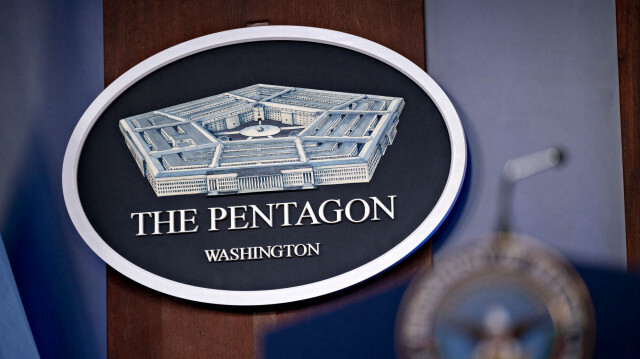

File photo
'It's important to let that investigation run its course,' says spokesperson
US Secretary of Defense Lloyd Austin had a discussion with Israel Defense Minister Yoav Gallant about the leak of purportedly classified documents detailing Israel's preparations for its avowed retaliatory strike on Iran, the Pentagon said on Tuesday.
"The Secretary has spoken with his counterpart," Pentagon spokesperson Pat Ryder told reporters.
"The investigation is in its first few days, so it's important to let that investigation run its course as it relates to the safety or the safeguarding of sensitive information. That is, of course, something that we take incredibly seriously here at the Department of Defense," said Ryder.
Earlier, the FBI said it is investigating the leak, and working closely with the Department of Defense and Intelligence Community.
The documents, dated Oct. 15 and 16, began circulating Friday after being shared on the Telegram channel, Middle East Spectator. The leaks reportedly came from a source within the US intelligence community.
One of the documents, reportedly compiled by the Defense Department's National Geospatial-Intelligence Agency, indicated that Israel's plans involve relocating munitions.
"The Israeli Air Force continued air-launched ballistic missile (ALBM) handling, cover UAV operations, and conducted a second large-force employment (LFE) exercise from 15 through October 2024, according to imagery analysis," said the document.
It noted that since Oct. 8, the Israeli Air Force has handled at least 16 Golden Horizon ALBMs and more than 40 IS02 (Rocks) ALBMs. The document said that ALBM handling continued at Hatzerim Airfield as of Oct. 16.
Another document said it is sourced to the National Security Agency and outlines Israeli air force exercises involving air-to-surface missiles, also believed to be in preparation for a strike on Iran.
Asked by reporters Friday if he has a "good understanding" of what Israel's response to Iran's Oct. 1 ballistic missile attack would entail, and when it would occur, Biden said succinctly: "Yes and yes."
Iran said it carried out the attack in retaliation for the assassinations of Hamas' former political leader in Tehran in July and the killing of Hezbollah Secretary-General Hassan Nasrallah in Beirut last month.
Nearly 200 missiles were fired in the salvo, which struck several locations in Israel, including a military facility, but resulted in no fatalities.
The exchanges of fire between Tel Aviv and Tehran have escalated this year after Israel bombed Iran's Embassy in Syria on April 1, killing senior military officials. Iran responded to that attack two weeks later by launching hundreds of drones and ballistic missiles at Israel.
Nearly all were intercepted by Israel, the US and its allies.
#Lloyd Austin
#US
#Tel Aviv
